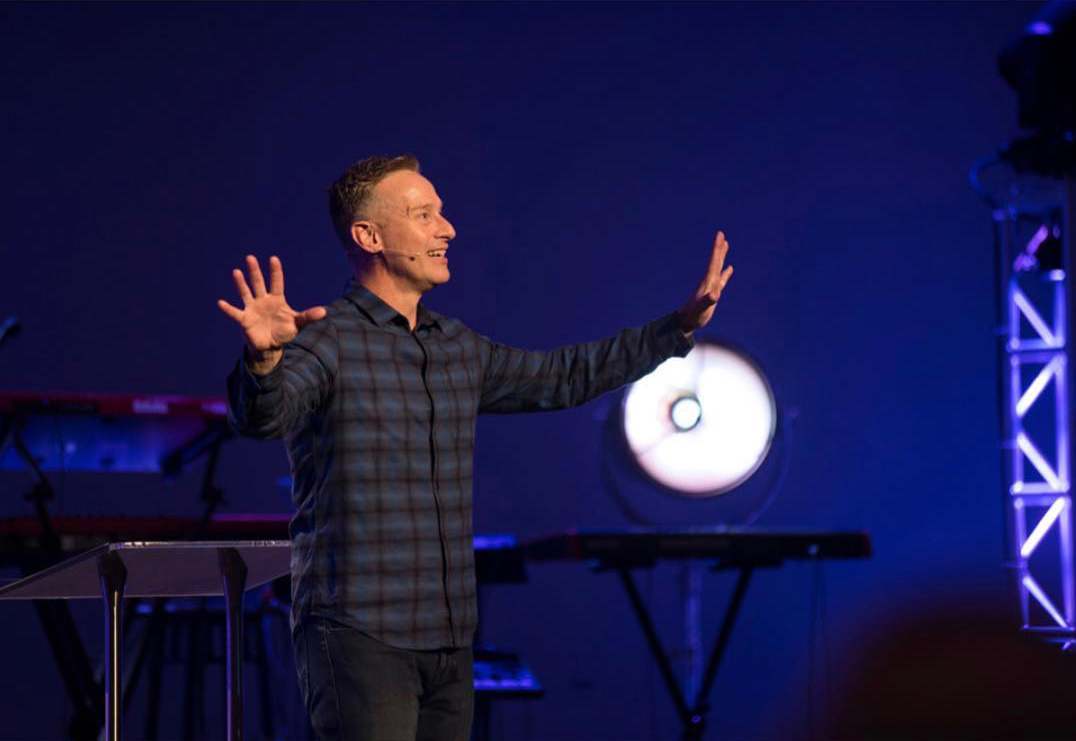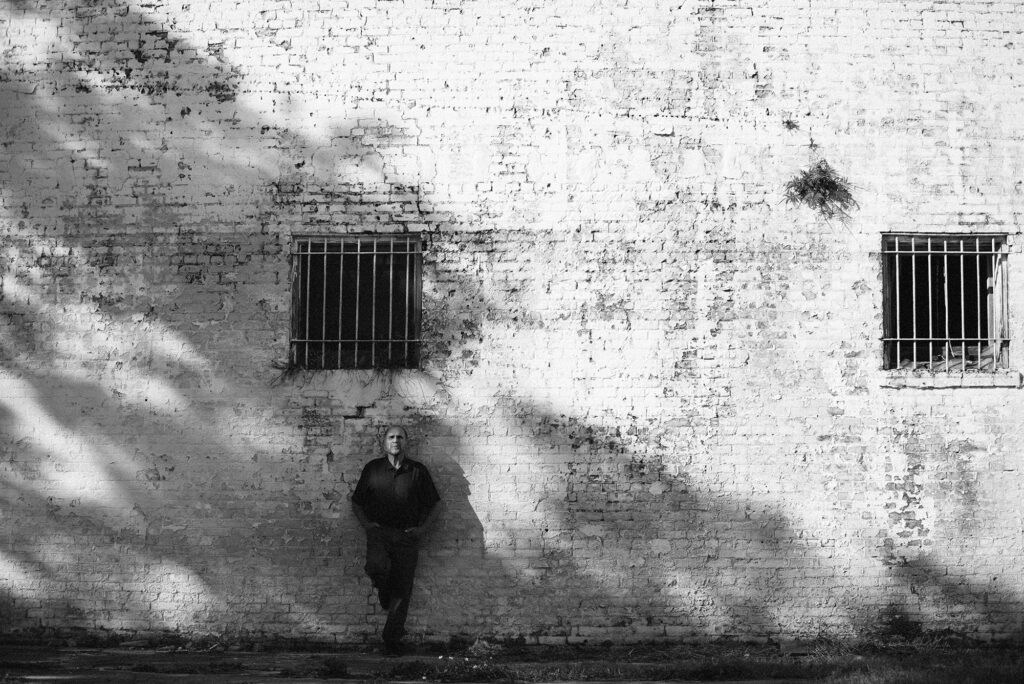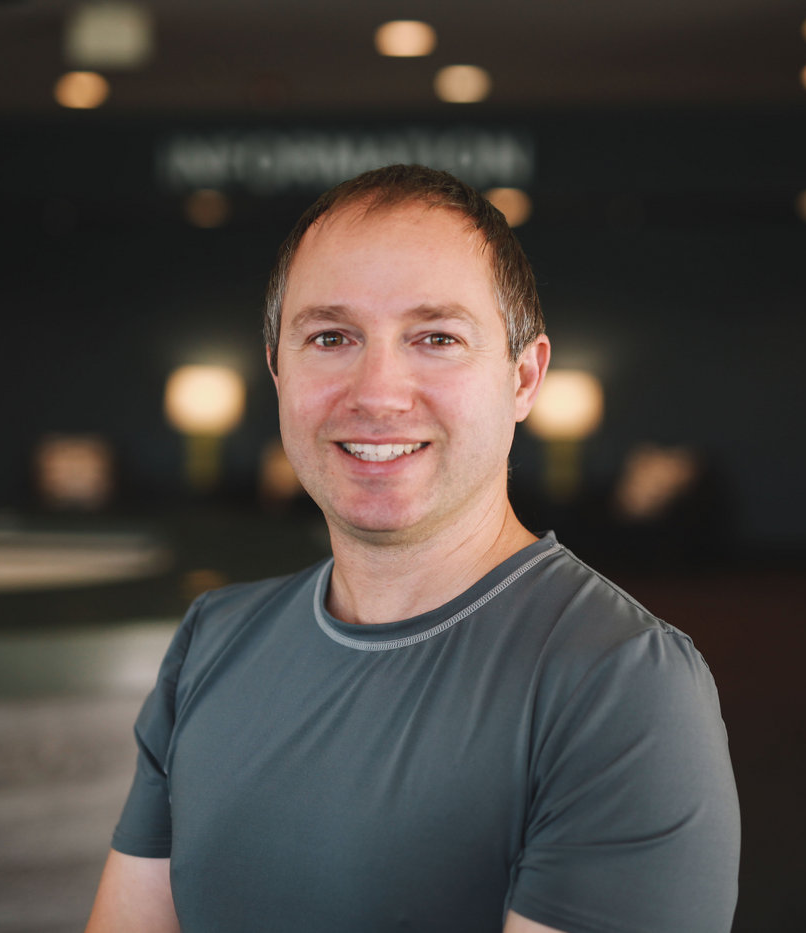Photography by Jason Stephens
In the midst of today’s over-medicated world, Highland Park Church’s Celebrate Recovery program offers those struggling from hurts, habits, and hangups another viable option for long-term healing.
America’s opioid crisis is at an all-time high. According to the National Institute of Drug Abuse, in 2017 alone the overdose death toll reached more than 49,000 people. But with many medications being lifesaving, or at least life-improving, what’s the right response to truly tackle addiction?
As death tolls continue to rise from overdoses, our country is torn between how to better handle our addiction issues. Among the proposed solutions are arguments of tighter controls on prescriptions to public money toward mental health. But, aside from drugs alone, we have also become stuck in unhealthy cycles that draw us to a multitude of bad habits and addiction which perhaps medicate rather than treat the underlying issues. So how do we truly see real and lasting change in the midst of a prevalent issue that seems to have little consensus?
Although there’s no easy solution, the power of one story may at least give us more perspective.
THE POWER OF DENIAL
In 2012, Harry Walter found himself on life support after overdosing on prescription pills. “It came to the point where I was taking so many pills and not even realizing how many I was taking,” recounts Walter.
He would come out of life support completely unaware of where he was or how he ended up there. “That’s how an addiction can grab a hold of you,” says Walter. Once his head was clear enough, he exited the hospital with only one thing in mind — feeding his chemical dependency once again.
This would turn into another three-year period where Walter wouldn’t slow down at all. There was a point where he was taking anywhere from 400 to 500 pills a month, and his health quickly started deteriorating. “The more pain you have, the more pills you take. And then it gets to the point where an addiction forms, and that’s all you live for anymore,” he says.
In 2016, Walter found himself lying in a hospital bed once again, this time with his daughter by his side looking him in the eyes and saying, “Dad, you’re going to end your life if you keep doing this.”
Walter looked right back at her and said, “I don’t care. I couldn’t care less.” Denial had captured Walter’s heart for years and was not only destroying his body, but the relationships that truly did matter to him the most.
With tears rolling down her cheeks, his daughter gathered the courage to muster up the words, “Dad, I love you.”
“She was with me through this whole addiction thing,” Walter says. With a glimmer of hope, he became willing to try whatever his daughter had in mind for him. With little knowledge of the program herself, she urged him to attend a program at Highland Park Church (HPN) called Celebrate Recovery. “It’s one of the promises I did keep. I broke so many promises to my little girl,” says Walter. So he went.

“Here’s the big thing I think most people miss: most healing of any kind is a process, not an event.”
– Pastor Brett Rickey
BELONG FIRST
Trapped in depression and isolation, Walter saw something he hadn’t seen in years the first time he stepped into Highland Park Church’s Celebrate Recovery large-group service: happy people. “The band started playing, and tears started rolling out of my eyes. It’s like a seed was planted there,” says Walter.
Celebrate Recovery is a 12-step recovery program aimed at supporting anyone overcoming “hurts, habits, and hangups,” such as drug and alcohol addiction, codependency, depression, eating disorders, sexual addiction, and compulsive behaviors. Originally founded in 1991 at Saddleback Church in Lake Forest, California, Celebrate Recovery has since expanded to over 20,000 churches and has facilitated recovery for over three million people.
Following a similar structure as other 12-step programs, what differentiates Celebrate Recovery is that each step is also supplemented with biblical-based teaching.
“There isn’t a whole lot of difference [between other 12-step programs and Celebrate Recovery] except that the higher power is predefined for people. Our higher power is Jesus Christ,” says Cameron Alder, HPN’s Celebrate Recovery pastor. “We have found that getting people to that connection with Jesus Christ offers more than just sobriety from their addiction.”
Along with worship and a large-group meeting/service, HPN’s Celebrate Recovery program also incorporates sharing, accountability, and step-study small groups.
“The large group meeting is more of an entry into the healing. The healing comes when we work the steps in a fellowship that is open,” says Alder. He believes that the combination of the openness that comes from the shared groups along with the step study keeps people coming back.
The first step of Celebrate Recovery says to: Admit I am powerless over my addictions and compulsive behaviors, that my life has become unmanageable. Programs such as Celebrate Recovery remind us that we are not alone in our struggles and that we are all in need of a true, lasting transformation to truly overcome our hurts, habits, and hangups.
That first step is what greatly influenced Walter to come back each week. He did not feel a pressure to have it all figured out or even believe in the doctrine of the church. He just acknowledged his desperate need for change and found others who were also desperate for the same.
“Celebrate Recovery helps people who know they are broken, and it feels good to have others admitting the same thing, too. You don’t have to believe in our doctrine or desire to become like Jesus,” says Pastor Brett Rickey, lead pastor of Highland Park Church. “Celebrate Recovery is a place to belong first.”
“That’s the only thing that made sense to me at first, that my problem was bigger than me,” says Walter.

“Celebrate Recovery literally saved my life.”
– Harry Walter
TRUSTING THE PROCESS
The process to recovery was not an instantaneous event for Walter. He did not overcome his addiction after only attending that initial Celebrate Recovery service. But he kept choosing to come back, although he was not ready to give up his pills.
“The power of addiction had a hold of me really bad, because I wanted to be happy again,” Walter says, “but I didn’t know how to get there. As time went on, Celebrate Recovery started making sense.”
He continued to trust the steps presented in Celebrate Recovery, and the principles he learned would carry him through his darkest hours of addiction. Some of these hours found Walter so desperate that he even begged God to take his life. “That’s how far that addiction will take you,” Walter says. However, the teachings he learned through Celebrate Recovery gave him the strength to carry on another day and then another day and then another after that, until he overcame his addiction. “Celebrate Recovery literally saved my life,” he says.
In Celebrate Recovery, participants take personal inventory of their life. They reflect on their past and present, and truly uncover the roots of their hurts and habits in order to move forward.
“Here’s the big thing I think most people miss: most healing of any kind is a process, not an event,” says Rickey.
Like any process, for it to truly have lasting change, people must put in the time and hard work it takes to get to where they want to go next.
“So if people come and don’t work the steps, I don’t think they’ll find much healing. I think they’ll see hope for healing, but I don’t think they’ll find it unless they actually work the steps,” says Alder.
“[Walter] is living proof of the transforming nature of the grace of Jesus,” says Rickey.
While Walter’s journey has not been one absent of painful struggle, his ability to choose to do the hard work during the toughest of times built in him the resilience to continue to overcome his unhealthy compulsions and put his hope in something greater than himself.
“I’m not sure that anyone really has it all together, so at least we give people an honest place to start the healing process,” says Rickey.
Today, Walter is able to celebrate over three years of sobriety.

Cameron Alder serves on staff at Highland Park Church as a Celebrate Recovery pastor.
HOPE IN THE MIDST OF TRUTH
After working the steps, Walter would continue his journey with Celebrate Recovery as a small-group leader for those struggling with chemical dependency as he once did. He has been open about his process and journey, and has found great joy in being able to not hide his setbacks, but celebrate the hope that came from being in the open community fostered through Highland Park’s Celebrate Recovery program.
“I think the people who keep coming back are people that know the value of honesty and that it’s either be honest or spiral downwards into destruction,” says Alder.
As exhibited through Walter’s own story, honesty makes way for long-term healing. When others are honest and open about their own struggles, they quickly break through the power of denial and find that they are not alone in a hurting world.
This type of honesty is evident in not only Celebrate Recovery, but in all the ministries that surround Highland Park Church.
“Ask anyone what they like about Highland Park and it usually comes back to the fact that we are real and we don’t pretend to have it all figured out,” says Rickey. He is thankful for the stories that have come out of Celebrate Recovery and how it has impacted their church as a whole. “The stories shared from Celebrate Recovery have made our church a safer place to be real,” he says.
Walter’s ability to not only move past his addiction, but to draw deeper meaning and purpose from it continues to impact many lives in our community. Today, he is a ministry partner for Combee Connection, an outreach that helps those in need in the Combee area. The outreach was created after a need came to help those impacted by Hurricane Irma. The ministry continues to greatly impact the underserved of our community.
In a world burdened by hurts, habits, and hangups, “[Walter’s] story is proof to a skeptical world that there is a viable third option,” says Rickey.
Programs such as Celebrate Recovery remind us we are not meant to carry the weight of our pain alone. Honesty has the power to create long-term and transformative healing.


